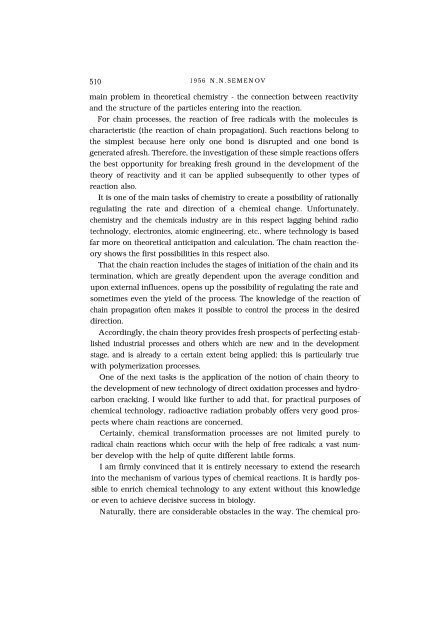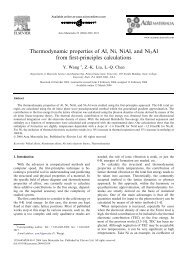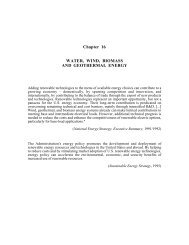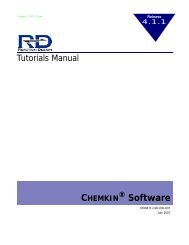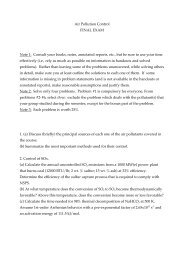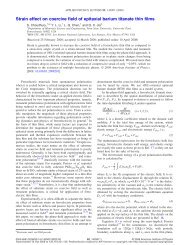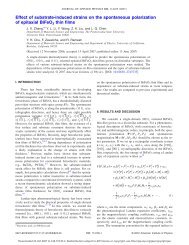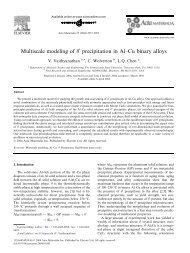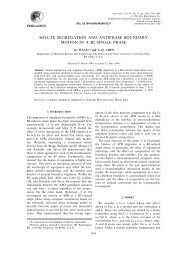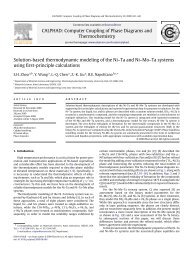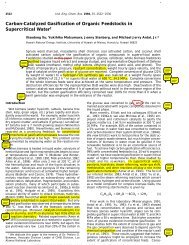Nikolai N. Semenov - Nobel Lecture - Nobelprize.org
Nikolai N. Semenov - Nobel Lecture - Nobelprize.org
Nikolai N. Semenov - Nobel Lecture - Nobelprize.org
You also want an ePaper? Increase the reach of your titles
YUMPU automatically turns print PDFs into web optimized ePapers that Google loves.
510 1956 N.N.SEMENOV<br />
main problem in theoretical chemistry - the connection between reactivity<br />
and the structure of the particles entering into the reaction.<br />
For chain processes, the reaction of free radicals with the molecules is<br />
characteristic (the reaction of chain propagation). Such reactions belong to<br />
the simplest because here only one bond is disrupted and one bond is<br />
generated afresh. Therefore, the investigation of these simple reactions offers<br />
the best opportunity for breaking fresh ground in the development of the<br />
theory of reactivity and it can be applied subsequently to other types of<br />
reaction also.<br />
It is one of the main tasks of chemistry to create a possibility of rationally<br />
regulating the rate and direction of a chemical change. Unfortunately,<br />
chemistry and the chemicals industry are in this respect lagging behind radio<br />
technology, electronics, atomic engineering, etc., where technology is based<br />
far more on theoretical anticipation and calculation. The chain reaction theory<br />
shows the first possibilities in this respect also.<br />
That the chain reaction includes the stages of initiation of the chain and its<br />
termination, which are greatly dependent upon the average condition and<br />
upon external influences, opens up the possibility of regulating the rate and<br />
sometimes even the yield of the process. The knowledge of the reaction of<br />
chain propagation often makes it possible to control the process in the desired<br />
direction.<br />
Accordingly, the chain theory provides fresh prospects of perfecting established<br />
industrial processes and others which are new and in the development<br />
stage, and is already to a certain extent being applied; this is particularly true<br />
with polymerization processes.<br />
One of the next tasks is the application of the notion of chain theory to<br />
the development of new technology of direct oxidation processes and hydrocarbon<br />
cracking. I would like further to add that, for practical purposes of<br />
chemical technology, radioactive radiation probably offers very good prospects<br />
where chain reactions are concerned.<br />
Certainly, chemical transformation processes are not limited purely to<br />
radical chain reactions which occur with the help of free radicals; a vast number<br />
develop with the help of quite different labile forms.<br />
I am firmly convinced that it is entirely necessary to extend the research<br />
into the mechanism of various types of chemical reactions. It is hardly possible<br />
to enrich chemical technology to any extent without this knowledge<br />
or even to achieve decisive success in biology.<br />
Naturally, there are considerable obstacles in the way. The chemical pro-


